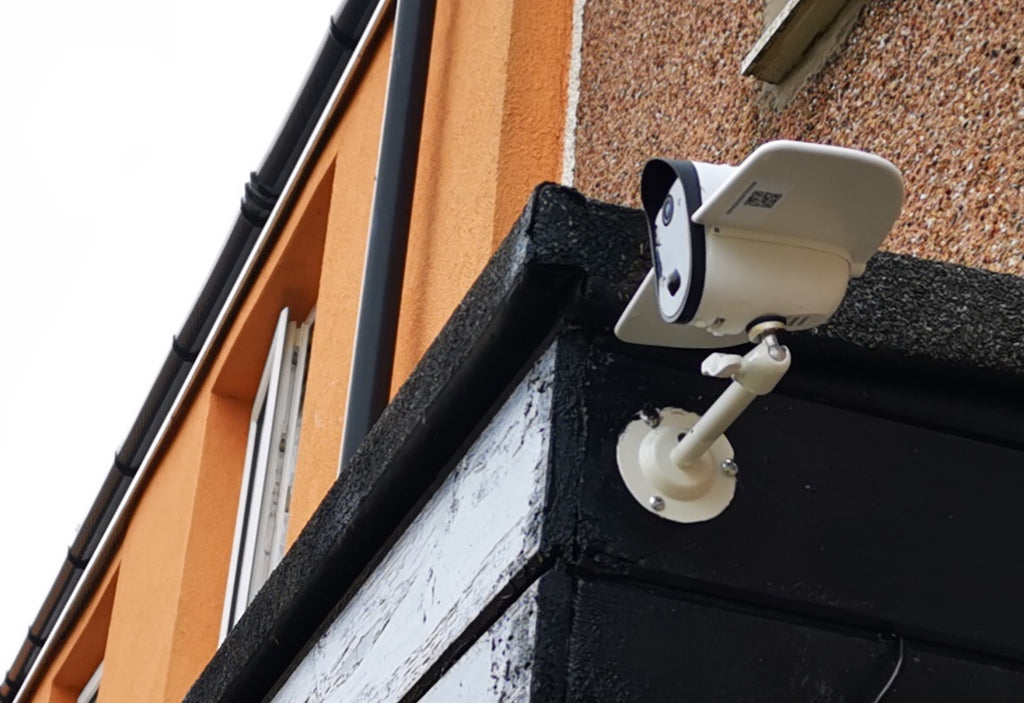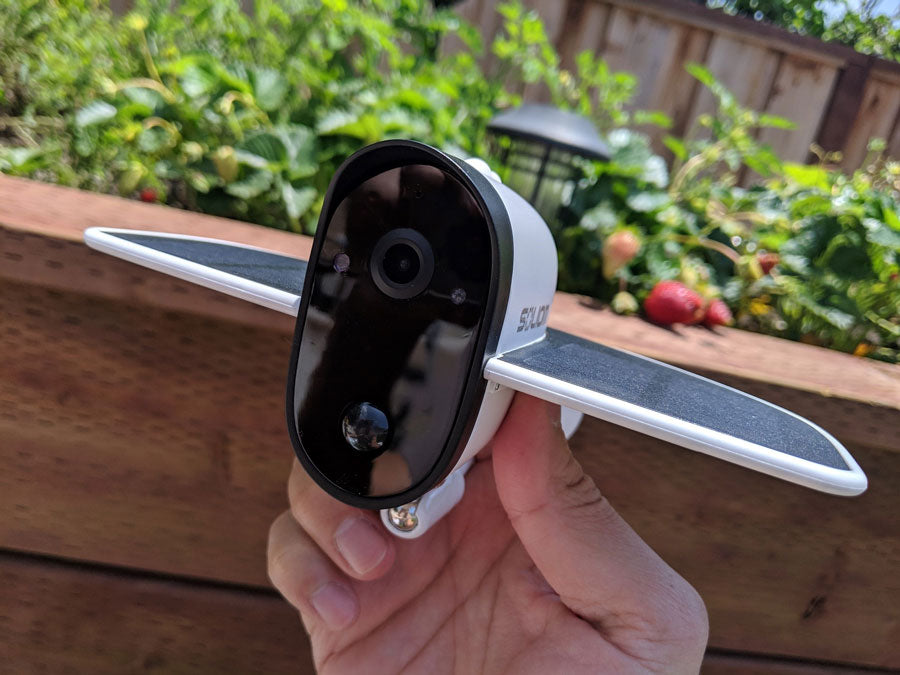However, there are many mistakes that people tend to make when installing a security camera. This can be a huge problem, as security cameras are responsible for your safety. To make sure that your camera is reliable and effective, make sure that you don’t make these mistakes when installing your outdoor security camera.
10 Common Outdoor Security Camera Installation Mistakes and How to Fix Them
1.Picking the wrong location
Picking the right place to install your outdoor wireless security camera can be tricky.People often think that surveying the area and picking the right angle is enough. However, there are many other things that you should consider when picking a location. For one thing, people often forget that sunlight can shine directly on a camera’s lens, rendering the footage useless because of a flare.
This is something that you should avoid under all circumstances, to get reliable and effective footage. You should also consider other sources of light, such as a backlight that can cause glares, as well as other reflective surfaces.
You should also consider checking if your camera is blocked by other objects, such as trees.
2.Not considering the surface
Wireless IP Security Cameras are often lightweight, They can come with many benefits; smaller security cameras are less likely to be detected, and less likely to clash with aroom’s aesthetic. Furthermore, their convenient sizes also don’t necessarily affect the high definition coverage when viewed in your Singapore office’s closed-circuit surveillance monitor.
This is the reason why itis important to secure cameras to the surfaces they are attached to. There are many ways for you to secure your camera, especially when the surfaces aren’t made from ideal materials, like cement or brick. Make sure to use screws and rods, and test to see if your camera is secure in its position.
3. Not considering the power source
When you’re installing a camera, whether it be an IP camera or an analog camera, make sure that the network is connected to a reliable power source. To do this, you can either connect it directly to an outlet or a battery. There are also some models wherein the cameras themselves can be fitted with batteries. This can be a good option, as they are less susceptible to damage and lost footage when there is a power outage.
4. Not considering Operating Temperature Range
Electrical items are rated to work in a certain temperature range.
If you are using your camera in an environment where the temperature exceeds either the lower or higher temperature, you run the risk of the security camera developing a fault.
We have you covered if you need a wireless security camera to work in a cold temperature!
Always check the operating temperature range before you buy!
5. Not considering Waterproof Rating
This is the same as the operating temperature range. If you place a security camera outside in the elements, and it is not waterproof then your camera WILL develop a fault!
Not only will it develop a fault, but you may also be risking the safety of your home. You should never use electrical items outside in the rain if they are not waterproof.
6. Using an inadequate number of cameras
When purchasing a CCTV kit, you are often fitted with about four or five cameras. However, unless you only have a small space, this is most likely not enough. Thankfully, most IP CCTV systems nowadays keep scalability in mind, making it easy for you to add another IP camera should you need to.
If you only want a limited view of your property, you could stick to about four cameras and simply put a security camera in areas that are most susceptible to breaches, like the driveway and backdoor. However, if you’re trying to secure an expensive inventory, such as a safe in your workplace, it would be best to invest in enough cameras that would cover the entire area.
7. Leaving your system unsecure
Because your outdoor security system is your defense against intruders and criminals, it’s not surprising that many people are concerned about the security of the network itself. After all, we have all seen hackers on TV who can easily access a person’s feed, and spy on the employees or their families. However, this scenario is greatly exaggerated and is something that can rarely happen. After all, there are many things you can do to keep your system secure and safe from hackers and other dangers.
The simplest thing you can do to avoid being hacked is making sure that your network is password protected. If you’re using an analog camera, your feed will be more secure and resilient to damage, however, you will need to secure your recorded footage to make sure that it doesn’t get stolen or destroyed. If you’re using an IP camera, your connection will be running over an IP connection, which will be susceptible to outside access, such as hacking. However, protecting your feed can be as easy as password protecting your network, as you would with any internet connection.
As with any password, make sure to keep it a secret. Also make sure that your password isn’t something simple and easy-to-guess, and never share it with strangers.
Aside from installing passwords for your CCTV network in Singapore, you may also have a gate intercommunication to the office phone system in your office. Having an intercom system with phone and door access integration can truly improve the safety and security of your business.
8. Not setting up alerts
Alerts can be one of the important and helpful parts of your system, yet people still forget to set them up. While CCTV systems can monitor footage and deter criminals, it would still be on its own when a burglar does end up breaking into your house or place of business. Most systems nowadays can notify you if the system is tripped, by detecting if there is any motion on screen.
9. Poor maintenance
To avoid potential system failures, it is important to keep all equipment properly maintained.
Having a good maintenance schedule and structure means that a business can ensure all cameras are functioning as they should be, and that system integrity is up to scratch.
10. Failure to hire a professional
An entrepreneur has limited time availability. You may decide not to hire qualified personnel or company to install the security CCTV cameras on your behalf. You get to save on expenses, but have you thought about the quality of security?
Seeking help from a company that installs security camera will help ensure proper installation.
Neglecting this is likely to result in faults later down the line.
With this feature, you and your family or employees will be warned beforehand so that you can take the necessary actions to minimize harm and damage.




Leave a comment
This site is protected by hCaptcha and the hCaptcha Privacy Policy and Terms of Service apply.